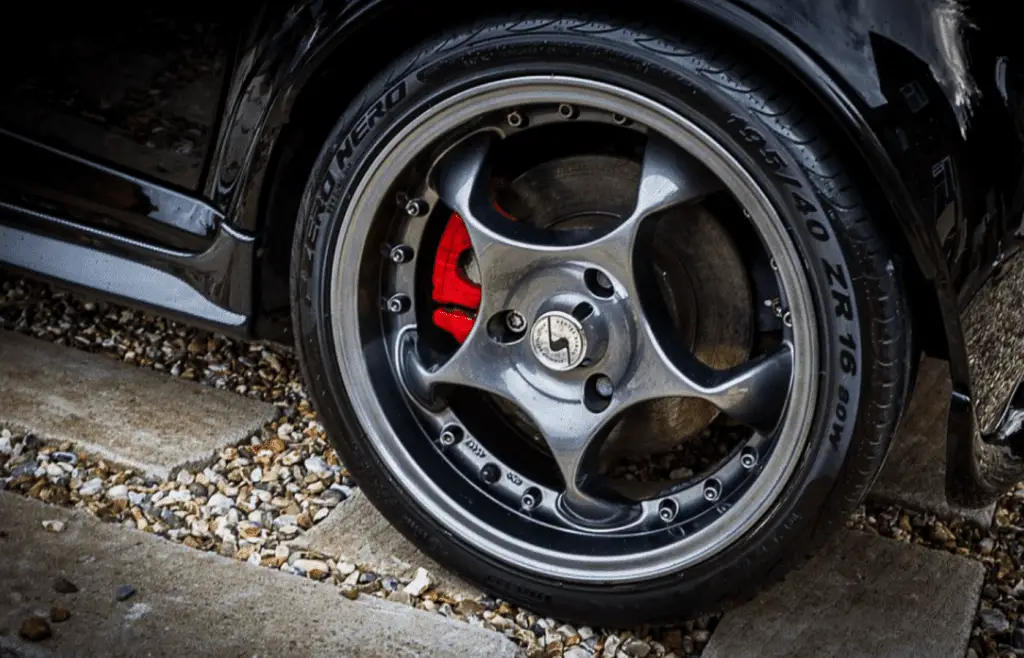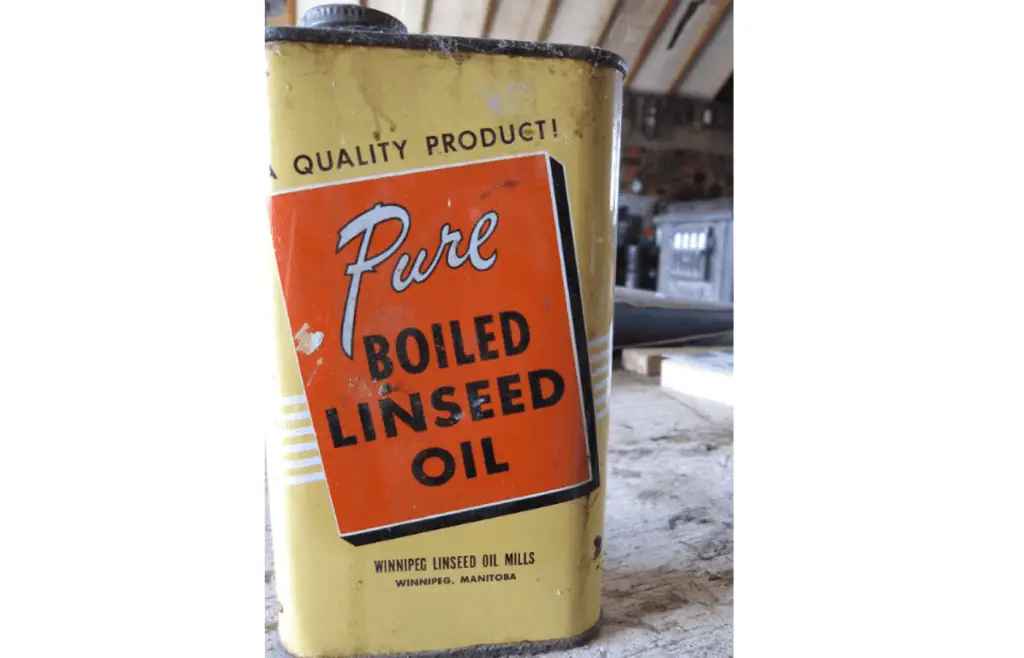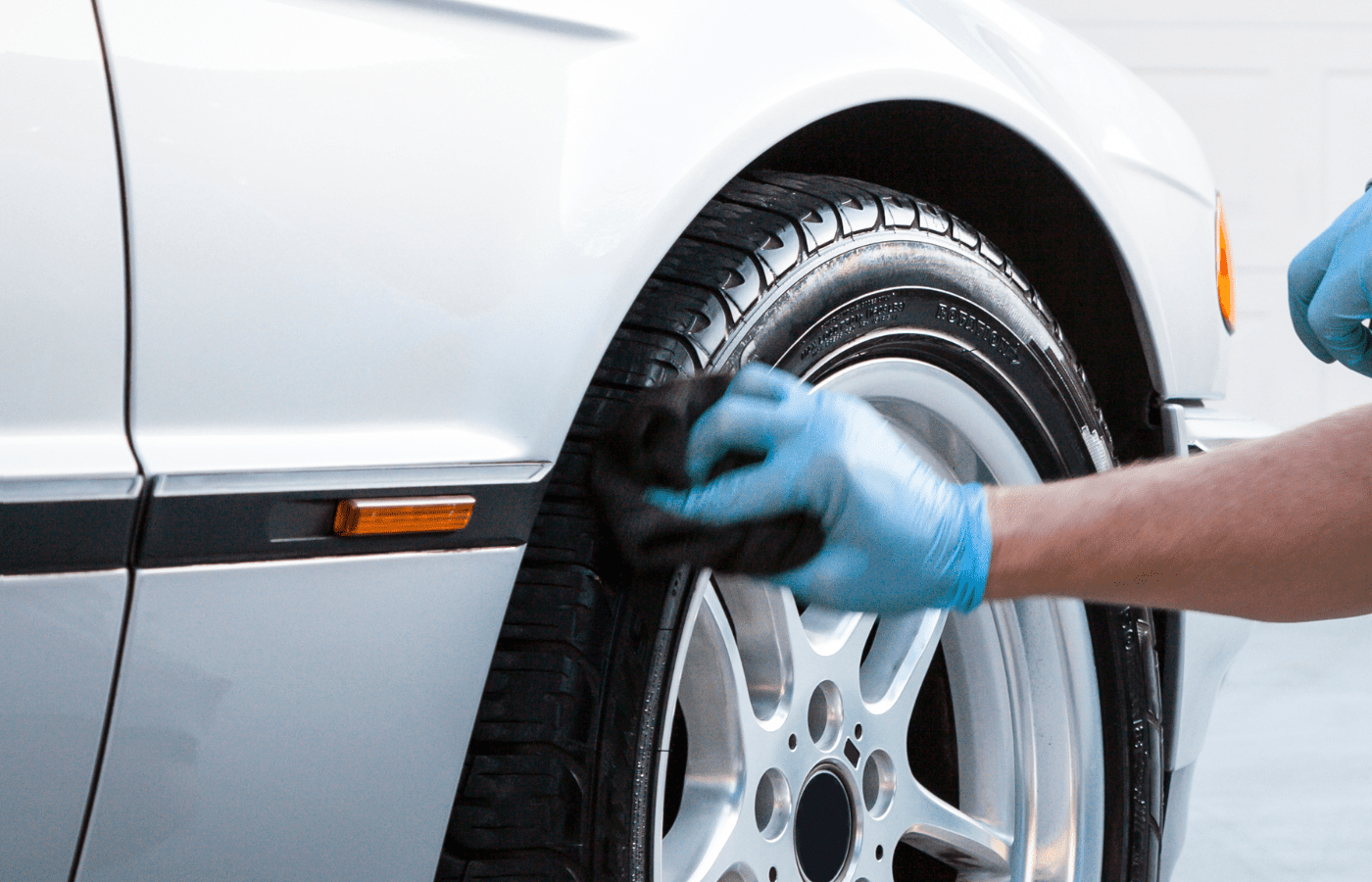Many of the tire shine products on the market are highly toxic and some can actually damage your tires in the long term. Looking for more natural ways to give your tire that awesome brand new tire shine is a better alternative than putting harsh chemicals on them.
Can you use boiled linseed oil on tires? The answer is yes. Some old tire shine formulas actually had linseed oil as one of their main ingredients. Adding boiled or waxed linseed oil to your tires will give them that glossy look that will make your wheels shine.
Linseed oil has been around for a long time and has a number of uses. Boiled linseed oil is easy to use, dries quickly, and leaves a long-lasting shine.
What is Linseed Oil?
Linseed oil is actually derived from flaxseeds, which is also known as flaxseed oil. It’s most commonly used on wood for refinishing. It absorbs deep into the wood’s grain which helps enhance the color and texture.
Boiling the linseed oil adds drying solvents which aids in speeding up the drying process in the wood. Using raw linseed oil can work, but it is very slow to dry and is not recommended.
To check the current price and availability of boiled linseed oil, click here to view the listing on Amazon.
How to Apply Boiled Linseed Oil to Your Tires

- The first step is to purchase Linseed oil that has been boiled. Using linseed oil that has not been boiled will have a much longer drying time and wont yield the same results.
- Next you will need a microfiber cloth, car detailing rag, or a brush. Open the bottle to your boiled linseed oil and place the cloth on top. Tip of the bottle to coat a small area of the cloth. If using a brush, simply apply a small amount to the brush.
- Gently run the cloth onto your tire in a circular motion going clockwise. I would recommend going over the entire tire about one time, and to not apply too much linseed oil. A little will go a long way.
- Once your tires are properly coated, you will need to let it dry. Boiled linseed oil takes anywhere from 24-72 hours to be fully dry to the touch, but you should be okay to drive after 24 hours.
How Long Will the Shine Last?
You may start to notice that your tire may start to lose its shine, or start to accumulate dirt/dust after about a week or two. This is normal as the rubber will start to absorb the linseed oil.
Although your tire will lose some of the shine, it will also have a darker appearance due to absorbing the linseed oil. The darkening will happen over time the more
How Often Can You Apply Linseed Oil to Your Tires?
You can apply linseed oil to your tires every time it dries up on your tires. You do not want to add more linseed oil to your tires while it is still damp or wet as this can have negative effects.
Some users stated that applying too much linseed oil on their tires left a sticky film that attracted dust/dirt.
Applying linseed oil to your tires every two weeks should be enough time to let it dry before a reapplication.
Is Boiled Linseed Oil Good for Rubber?

Boiled linseed oil is a great alternative to rubber instead of using harsh chemicals. Not only does it add a shine to your tires, but it also helps moisten them as well. This is especially great on weather damaged tires as they will slowly start to become moist.
Along with adding shine and moisture back on a weathered tire, linseed oil will also provide UV protection.
Is Boiled Linseed Oil Waterproof?
Boiled linseed oil is a natural water repellant. However, for the waterproof characteristics to take effect, the oil must be on dried on whatever surface it is bound to.
Making sure linseed oil has fully dried, or cured, is important in order to reap the benefits of UV protection and to protect from water damage.
Frequently Asked Questions
Is Boiled Linseed Oil Good for Metal?
Boiled linseed oil isn’t just great for wood and rubber. Boiled linseed oil is also great on metal. It helps preserve it by protecting the surface from oxidation which is what causes rust.
Like with all applications of linseed oil, it is best to apply thin coats. Thin coats will dry much quicker and help prevent the area from becoming gummy or sticky.
Is Boiled Linseed Oil Good for Plastic?
Boiled linseed works excellent on plastic. Applying linseed oil to plastic will give it a bright shine, and is great for restoring faded or old plastic.
Application is still the same, always apply thin coats to the plastic pieces on the interior and exterior of your vehicle.
What Other Uses Does Linseed Oil Have?
Linseed oil has many uses. Linseed oil is used as a paint binder with oil paint. It has uses in traditional glazing putty’s. One of it’s most popular uses is for wood refinishing. Traditional linseed oil is used in oil gliding.
Linseed oil is also used as a binder to bind materials like wood dust, cork, and other related materials when it comes to creatine linoleum.
Last, but not least, linseed oil is also used as a nutritional supplement, as it is an oil after all.
Final Thoughts
Boiled linseed oil is a great alternative to the toxic tire shine products in today’s market.
The shine will rival many of the top products on the market, and is an all natural way to give your tires that brand new look right after a carwash/detail.
When applying boiled linseed oil to any surface, always be sure to use thin coats. It’s better to use less than more. If you overuse linseed oil, it can leave behind a sticky or gummy residue or film.


